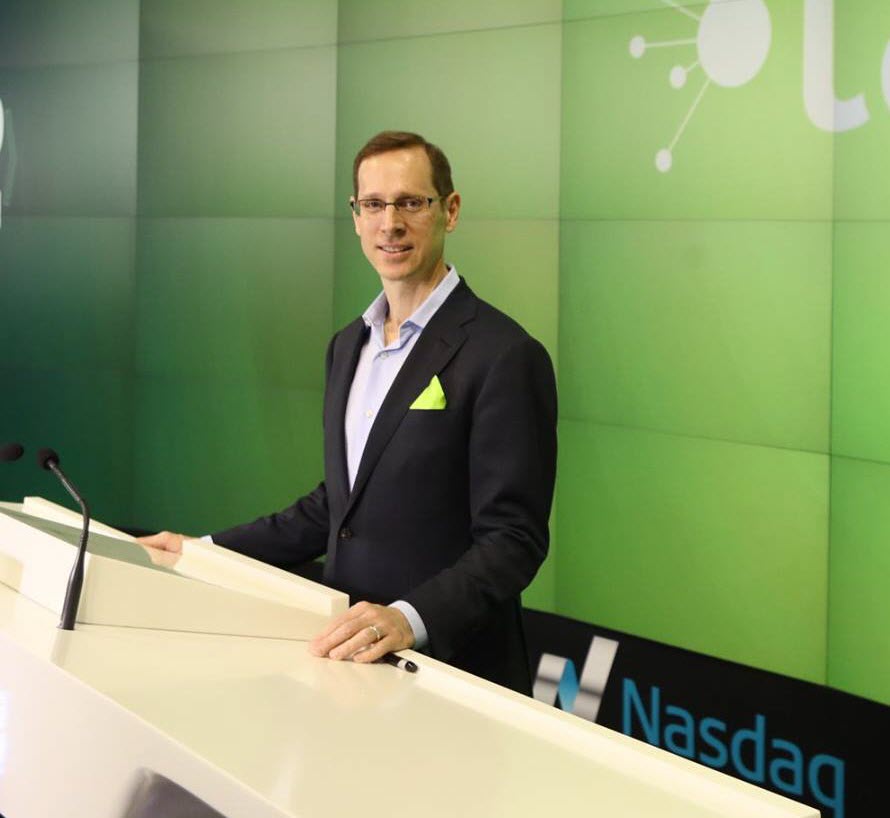 CLOUD
CLOUD
 CLOUD
CLOUD
 CLOUD
CLOUD
The data integration market has long been dominated by giants like Informatica Corp. and IBM Corp., but Talend SA’s cloud-native approach continues to chip away at the stalwarts’ market share, according to its chief executive.
On Tuesday, Talend reported a 36 percent surge in revenue in its fiscal fourth quarter, along with a 40 percent jump in annual revenue, to $148.5 million. Cloud subscription revenues grew even faster, up 40 percent for the quarter and 42 percent for the year.
“The headline really is about the cloud,” Talend CEO Mike Tuchen said in an interview today with SiliconANGLE. “It’s clearly exploding for us, and part of that is a generational change toward self-service and data in the cloud.”
Although Talend missed quarterly earnings estimates by a penny per share, investors focused more on its increased full-year revenue forecast of between $200 million and $202 million. Analysts had been expecting $193 million. Talend shares spiked more than 10 percent today, capping a nearly 60 percent rise in the stock over the past year.
Although the company still isn’t making money, Tuchen said profitability is in its crosshairs. Fiscal 2018 losses should come in at around $13 million to $14 million, down from more than $22 million in 2017 on a non-IFRS (International Financial Reporting Standards) basis. Profits margins are close to breaking into positive territory. “We’re on a nice, consistent glide path toward profitability,” Tuchen said.
Talend has never been one to swing for the fences. The company has consistently guided investors to expect growth rates to be tempered by an offsetting focus on improving margins. And it has delivered few surprises since going public 18 months ago.
On the competitive front, the company’s cloud-first approach has enabled it to unseat incumbents that are struggling to move their legacy on-premises offerings to the cloud, although Tuchen couldn’t cite specific market share data.
“All of our big customers already have some [legacy] data integration tools in place, usually two or three of them, and they’re stuck,” he said. “They’re finding that what they have on-premises doesn’t work very well in the cloud. Their vendors took an old boat anchor and put a spiffy coat of paint on it.”
Talend runs as a native Elastic MapReduce service on Amazon Web Services Inc.’s platform, whereas legacy competitors have deployed more expensive runtime libraries. Using native EMR “is dramatically simpler, cheaper and faster,” he said. “When you build to be cloud-native, the difference is dramatic.”
And despite growth in the cloud business, Talend’s on-premises license revenues are continuing to forge ahead by double-digit percentages, the CEO said. “We’ve been wondering for a while when the rest of the product line will start flattening out and that still isn’t really in sight. It keeps plugging along,” he said. Net expansion rates continue to average about 125 percent, meaning that customers typically spend about one-quarter more with each renewal cycle.
Looking ahead to 2018, Tuchen said, “We’re going to keep doubling and tripling down on cloud.” Other dominant technology forces will be data lakes, self-service data integration, real-time processing and machine learning. “We see those five trends as the ones that will drive generational change over the next several years,” he said.
Support our mission to keep content open and free by engaging with theCUBE community. Join theCUBE’s Alumni Trust Network, where technology leaders connect, share intelligence and create opportunities.
Founded by tech visionaries John Furrier and Dave Vellante, SiliconANGLE Media has built a dynamic ecosystem of industry-leading digital media brands that reach 15+ million elite tech professionals. Our new proprietary theCUBE AI Video Cloud is breaking ground in audience interaction, leveraging theCUBEai.com neural network to help technology companies make data-driven decisions and stay at the forefront of industry conversations.